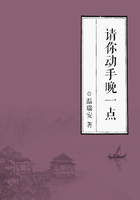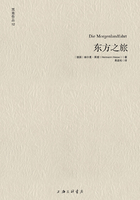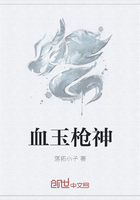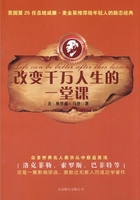THE MACHINE AND THE MAIDEN: A KNIGHT OF TO-DAY
At the flat that evening Carrie felt a new phase of its atmosphere. The fact that it was unchanged, while her feelings were different, increased her knowledge of its character. Minnie, after the good spirits Carrie manifested at first, expected a fair report. Hanson supposed that Carrie would be satisfied.
"Well," he said, as he came in from the hall in his working clothes, and looked at Carrie through the dining-room door, "how did you make out?"
"Oh," said Carrie, "it's pretty hard. I don't like it."
There was an air about her which showed plainer than any words that she was both weary and disappointed.
"What sort of work is it?" he asked, lingering a moment as he turned upon his heel to go into the bathroom.
"Running a machine," answered Carrie.
It was very evident that it did not concern him much, save from the side of the flat's success. He was irritated a shade because it could not have come about in the throw of fortune for Carrie to be pleased.
Minnie worked with less elation than she had just before Carrie arrived. The sizzle of the meat frying did not sound quite so pleasing now that Carrie had reported her discontent. To Carrie, the one relief of the whole day would have been a jolly home, a sympathetic reception, a bright supper table, and some one to say: " Oh, well stand it a little while. You will get something better," put now this was ashes. She began to see that they looked upon her complaint as unwarranted, and that she was supposed to work on and say nothing. She knew that she was to pay four dollar for her board and room, and now she felt that it would be an exceedingly gloomy round living with these people.
Minnie was no companion for her sister-she was too old. Her thoughts were staid and solemnly adapted to a condition. If Hanson had any pleasant thoughts or happy feelings he concealed them. He seemed to do all his mental operations without the aid of physical expression. He was as still as a deserted chamber. Carrie, on the other hand, had the blood of youth and some imagination. Her day of love and the mysteries of courtship were still ahead. She could think of things she would like to do, of clothes she would like to wear, and of places she would like to visit. These were the things upon which her mind ran, and it was like meeting with opposition at every turn to find no one here to call forth or respond to her feelings.
She had forgotten, in considering and explaining the result of her day, that Drouet might come. Now, when she saw how unreceptive these two people were, she hoped he would not. She did not know exactly what she would do or how she would explain to Drouet, if he came. After supper she changed her clothes. When she was trimly dressed she was rather a sweet little being, with large eyes and a sad mouth. Her face expressed the mingled expectancy, dissatisfaction, and depression she felt. She wandered about after the dishes were put away, talked a little with Minnie, and then decided to go down and stand in the door at the foot of the stairs. If Drouet came, she could meet him there. Her face took on the semblance of a look of happiness as she put on her hat to go below.
"Carrie doesn't seem to like her place very well," said Minnie to her husband when the latter came out, paper in hand, to sit in the dining-room a few minutes.
"She ought to keep it for a time, anyhow," said Hanson. " Has she gone downstairs?"
"Yes," said Minnie.
"I'd tell her to keep it if I were you. She might be here weeks without getting another one."
Minnie said she would, and Hanson read his paper.
"If I were you," he said a little later, "I wouldn't let her stand in the door down there. It don't look good."
"I'll tell her," said Minnie.
The life of the streets contained for a long time to interest Carrie. She never wearied of wondering where the people in the cars were going or what their enjoyments were. Her imagination trod a very narrow round, always winding up at points which concerned money, looks, clothes or enjoyment. She would have a far-off thought of Columbia City now and then, or an irritating rush of feeling concerning her experiences of the present day, but, on the whole, the little world about her enlisted her whole attention.
The first floor of the building, of which Hanson's flat was the third, was occupied by a bakery, and to this, while she was standing there, Hanson came down to buy a loaf of bread. She was not aware of his presence until he was quite near her.
"I'm after bread," was all he said as he passed. The contagion of thought here demonstrated itself. While Hanson really came for bread, the though dwelt with him that now he would see what Carrie was doing. No sooner did he draw near her with that in mind than she felt it. Of course, she had no understanding of what put it into her head, but, nevertheless, it aroused in her the first shade of real antipathy to him. She knew now that she did not like him. He was suspicious.
A though will color a world for us. The flow of Carrie's meditations had been disturbed, and Hanson had not long gone upstairs before she followed. She had realized with the lapse of the quarter hours that Drouet was not coming, and somehow she felt a little resentful, a little as if she had been forsaken-was not good enough. She went upstairs, where everything was silent. Minnie was sewing by a lamp at the table. Hanson has already turned in for the night. In her weariness and disappointment Carrie did no more than announce that she was going to bed.
"Yes, you'd better," returned Minnie. " You've got to get up early, you know."
The morning was no better. Hanson was just going out the door as Carrie came from her room. Minnie tried to talk with her during breakfast, but there was not much of interest which they could mutually discuss. As on the previous morning, Carrie walked down town, for she began to realize now that her four-fifty would not even allow her cat fare after she paid her board. This seemed a miserable arrangement. But the morning light swept away the first misgivings of the day, as morning light is ever won't to do.
At the shoe factory she put in a long day, scarcely so wearisome as the preceding, but considerably less novel. The head foreman, on his round, stopped by her machine.
"Where did you come from?" he inquired.
"Mr. Brown hired me," she replied.
"Oh, he did, eh!" and then, " She that you keep things going."
The machine girls impressed her even less favorably. They seemed satisfied with their lot, and were in a sense " common." Carrie had more imagination than they She was not used to slang. Her instinct in the matter of dress was naturally better. She disliked to listen to the girl next to her, who was rather hardened by experience.
"I'm going to quit this," she heard her remark to her neighbor. "What with the stipend and being up late, it's too much for me health."
They were free with the follows, young and old, about the place, and exchanged banter in rude phrases, which at first shocked her. She saw that she was taken to be of the same sort and addressed accordingly.
"Hello," remarked one of the stout-wristed sole-workers to her at noon. " You're a daisy." He really expected to hear the common " Aw! go chase yourself!" in return, and was sufficiently abashed, by Carrie's silently moving away, to retreat, awkwardly grinning.
That night at the flat she was even more lonely-the dull situation was becoming harder to endure. She could see that the Hassons seldom or never had any company. Standing at the street door looking out, she ventured to walk out a little way. Her easy gait and idle manner attracted attention of an offensive but common sort. She was slightly taken back at the overtures of a well-dressed man of thirty, who in passing looked at her, reduced his pace, turned back, and said:
"Out for a little stroll, are you, this evening?"
Carrie looked at him in amazement, and then summoned sufficient thoughts to reply: "Why, I don't know you," backing away as she did so.
"Oh, that don't matter," said the other affably.
She bandied no more words with him, but hurried away, reaching her own door quite out of breath. There was something in the man's look which frightened her.
During the remainder of the week it was very much the same. One or two nights she found herself too tried to walk home, and expended car fare. She was not very strong, and sitting all day affected her back. She went to bed one night before Hanson.
Transplantation is not always successful in the matter of flowers or maidens. It requires sometimes a richer soil, a better atmosphere to continue even a natural growth. It would have been better if her acclimatization had been more gradual-less rigid. She would have done better if she had not secured a position so quickly, and had seen more of the city which she constantly troubled to know about.
On the first morning it rained she found that she no umbrella. Minnie loaned her one of hers, which was worn and faded. There was the kind of vanity in Carrie that troubled at this. She went to one of the great department stores and bought herself one, using a dollar and a quarter of her small store to pay for it.
"What did you do that for, Carrie?" asked Minnie, when she saw it.
"Oh, I need one," said Carrie.
"You foolish girl."
Carrie resented this, though she did not reply. She was not going to be a common shop-girl, she though; they need not think it, either.
One the first Saturday night Carrie paid her board, four dollars. Minnie had a quaver of conscience as she took it, but did not know how to explain to Hanson if she took less. That worthy gave up just four dollar less toward the household expenses with a smile of satisfaction. He contemplated increasing his Building and Loan payments. As for Carrie, she studied over the problem of finding clothes and amusement on fifty cents a week. She brooded over this until she was in a state of mental rebellion.
"I'm going up the street for a walk," she said after supper.
"Not alone, are you? asked Hanson.
"Yes," returned Carrie.
"I wouldn't," said Minnie.
"I want to see something," said Carrie, and by the tone she put into the last word they realized for the first time she was not pleased with them.
"What's the matter with her?" asked Hanson, when she went into the front room to get her hat.
"I don't know," said Minnie.
"Well, she ought to know better than to want to go out alone."
Carrie did not go very far, after all. She returned and stood in the door. The next day they went out to Garfield Park, but it did not please her. She did not look well enough. In the shop next day she heard the highly colored reports which girls give of their trivial amusements. They had been happy. On several days it rained and she used up car fare. One night she got thoroughly that evening she sat alone in the front room looking out upon the street, where the lights were reflected on the wet pavements, thinking. She had imagination enough to be moody.
On Saturday she paid another four dollars and pocketed her fifty cents in despair. The speaking acquaintanceship which she formed with some of the girls at the shop discovered to her the fact that they had more of their earnings to use for themselves than she did. They had young men of the kind whom she, since her experience with Drouet, felt above, who took them about. She came to thoroughly dislike the light-headed young fellows of the shop. Not one of them had a show of refinement. She saw only their workday side.
There came a day when the first premonitory blast of winter swept over the city. It scudded the fleecy clouds in the heavens, trailed long, thin streamers of smoke from the tall stacks, and raced about the streets and corners in sharp and sudden puffs. Carrie now felt the problem of winter clothes. What was she to do? She had no winter jacket, no hat, no shoes. It was difficult to speak to Minnie about this, but at last she summoned the courage.
"I don't know what I'm going to do about clothes," she said one evening when they were together. "I need a hat."
Minnie looked serious.
"Why don't you keep part of your money and buy yourself one?" she suggested, worried over the situation which the withholding of Carrie's money would create.
"I'd like to for a week or so, if you don't mind," ventured Carrie.
"Could you pay two dollars?" asked Minnie.
Carrie readily acquiesced, glad to escape the trying situation, and liberal now that she saw a way out. She was elated and began figuring at once. She needed a hat first of all. How Minnie explained to Hanson she never knew. He said nothing at all, but there were thoughts in the air which left disagreeable impressions.
The new arrangement might have worked if sickness had not intervened. It blew up cold after a rain one afternoon when Carrie was still without a jacket. She came out of the warm shop at six and shivered as the wind struck her. In the morning she was sneezing, and going down town made it worse. That day her bones ached and she felt light-headed. Towards evening she felt very ill, and when she reached home was not hungry. Minnie noticed her drooping actions and asked her about herself.
"I don't know," said Carrie. "I feel real bad."
She hung about the stove, suffered a chattering chill, and went to bed sick. The next morning she was thoroughly feverish.
Minnie was truly distressed at this, but maintained a kindly demeanor. Hanson said perhaps she had better go back home for a while. When she got up after three days, it was taken for granted that her position was lost. The winter was near at hand, she had no clothes, and now she was out of work.
"I don't know," said Carrie; "I'll go down Monday and see if I can't get something."
If anything, her efforts were more poorly rewarded on this trail than the last. Her clothes were nothing suitable for fall wearing. Her last money she had spent for a hat. For three days she wandered about, utterly dispirited. The attitude of the flat was fast becoming unbearable. She hated to think of going back there each evening. Hanson was so cold. She knew it could not last much longer. Shortly she would have to give up and go home.
On the fourth day she was down town all day, having borrowed ten cents for lunch from Minnie. She had applied in the cheapest kind of places without success. She even answered for a waitress in a small restaurant where she saw a card in the window, but they wanted an experienced girl. She moved through the thick throng of strangers, utterly subdued in spirit. Suddenly a hand pulled her arm and turned her about.
"Well, well!" said a voice. In the first glance she beheld Drouet. He was not only rosy-cheeked, but radiant. He was the essence of sunshine and good-humor.
"Why, how are you, Carrie?" he said. "You're a daisy
Where have been?"
Carrie smiled under his irresistible flood of geniality.
"I've been out home," she said.
"Well," he said, " I saw you across the street there. I thought it was you. I was just coming out to your place.
How are you, anywhere?"
"I'm all right," said Carrie, smiling.
Drouet looked her over and saw something different.
"Well," he said, " I want to talk to you. You're not going anywhere in particular, are you?"
"Not just now," said Carrie.
"Let's go up here and have something to eat. George! but I'm glad to see you again."
She felt so relieved in his radiant presence, so much though with the slightest air of holding back.
"Well," he said, as he took her arm-and there was an exuberance of good-fellowship in the word which fairly warmed the cockles of her heart.
They went through Monroe Street to the old Windson dining- room, which was then a large, comfortable place with an excellent cuisine and substantial service. Drouet selected a table close by the window, where the busy route of the street could be seen. He loved the changing panorama of the street-to see and be seen as he dined.
"Now," he said, getting Carrie and himself comfortably settled, "what will you have?"
Carrie looked over the large bill of fare which the waiter handed her without really considering it. She was very hungry, and the things she saw there awakened her desires, but the high prices held her attention. "Half broiled spring chicken-seventy-five. Sirloin steak with mushrooms-one twenty-five." She had dimly heard of these things, but it seemed strange to be called to order from the list.
"I'll fix this," exclaimed Drouet. "Sst! waiter."
That officer of the board, a full-chested, round-faced negro, approached, and inclined his ear.
"Sirloin with mushrooms," said Drouet. "Stuffed tomatoes."
"Yassah," assented the negro, nodding his head.
"Hashed brown potatoes."
"Yassah."
"Asparagus."
"Yassah."
"And a pot of coffee."
Drouet turned to Carrie. "I haven't had a thing since breakfast. Just got in from Rock Island. I was going off to dine when I saw you."
Carrie smiled and smiled.
"What have you been doing?" he went on. "Tell me all about yourself. How is your sister?"
"She's well," returned Carrie, answering the last query.
He looked at her hard.
"Say," he said," you haven't been sick, have you?"
Carrie nodded.
"Well, now that's a blooming shame, isn't it? You don't look very well. I thought you looked a little pale.
What have you been doing?"
"Working," said Carrie.
"You don't say so! At what?"
She told him.
"Rhodes, Morgenthua and Scott-why I know that house. Over here on Fifth Avenue, isn't it? They're a close-fisted concern. What made you go there?"
"I couldn't get anything else," said Carrie frankly.
"Well, that's an outrage," said Drouet. "You oughtn't to be working for those people. Have the factory right back of the store, don't they?"
"Yes," said Carrie.
"That isn't a good house," said Drouet. "You don't want to work at anything like that, anyhow."
He chattered on at a great rate, asking questions, explaining things about himself, telling her what a good restaurant it was, until the waiter returned with an immense tray, bearing the hot savory dished which had been ordered. Drouet fairly shone in the matter of serving. He appeared to great advantage behind the white napery and silver platters of the table and displaying his arms with a knife and fork. As he cut the meat his rings almost spoke. His new suit creaked as he stretched to helped Carrie to a rousing plateful and contributed the warmth of his spirit to her body until she was a new girl. He was a splendid fellow in the true popular understanding of the term, and captivated Carrie completely.
That little soldier of fortune took her good turn in an easy way. She felt a little out of place, but the great room soothed her and the view of the well-dressed throng outside seemed a splendid thing. Ah, what was it not to have money! What a thing it was to be able to come in here and dine! Drouet must be fortunate. He rod on trains, dressed in such nice clothes, was so strong, and ate in these fine places. He seemed quite a figure of a man, and she wondered at his friendship and regard for her.
"So you lost your place because you got sick, eh?" he said. "What are you going to do now?"
"Look around," she said, a thought of the need that hung outside this fine restaurant like a hungry dog at her wheels passing into her eyes.
"Oh, no," said Drouet, "that won't do. How long have you been looking?"
"Four days," she answered.
"Think of that!" he said, addressing some problematical individual. "You oughtn't to be doing anything like that. These girls," and he waved an inclusion of all shop and factory girls, "don't get anything. Why, you can't live on it, can you?"
He was a brotherly sort of creature in his demeanor. When he had scouted the idea of that kind of toil, he took another tack. Carrie was really very pretty. Even then in her commonplace garb, her figure was evidently not bad, and her eyes were large and gentle. Drouet looked at her and his thoughts reached home. She felt his admiration. It was powerfully backed by his liberality and good- humor. She felt that she liked him-that she could continue to like him ever so much. There was something even richer than that, running as a hidden strain, in her mind. Every little while her eyes would meet his, and by that means the interchanging current of feeling would be fully connected.
"Why don't you stay down town and go to the theatre with me?" he said, hitching his chair closer. The table was not very wide.
"Oh, I can't," she said.
"What are you going to do to-night?"
"Nothing," she answered, a little drearily.
"You don't like out there where you are, do you?"
"Oh I don't know."
"What are you going to do if you don't get work?"
"Go back home, I guess."
There was least quaver in her voice as she said this. Somehow, the influence he was exerting was powerful. They came to an understanding of each other without words-he of her situation. she of the fact that he realized it.
"No," he said, " you can't make it!" genuine sympathy filling his mind for the time. "Let me help you. You take some of my money"
"Oh, no! she said, leaning back.
"What are you going to do?" he said.
She sat meditating, merely shaking her head.
He looked at her quite tenderly for his kind. There were some loose bills in his vest pocket-greenbacks They were soft and noiseless, and he got his fingers about them and crumpled them up in his hand.
"Carrie on," he said, "I'll see you through all right. Get yourself some clothes."
It was the first reference he had made to that subject, and now she realized how bad off she was. In his crude way he had struck the key-note. Her lips trembled a little.
She had her hand out on the table before her. They were quite alone in their corner, and he put his larger, warmer hand over it.
"Aw, come, Carrie," he said, "what can you do alone? Let me help you."
He pressed her hand gently and she tried to withdraw it. At this he held it fast, and she no longer protested. Then he slipped the greenbacks he had into her palm, and when she began to protest,
he whispered:
"I'll loan to you-that's all right. I'll loan it to you."
He made her take it. She felt bound to him by a strange tie of affection now. They went out, and he walked with her take it. She felt bound to him by a walked with her far out south toward Polk Street, talking.
"You don't want to live with those people?" he said in one place, abstractedly. Carrie heard it, but it made only a slight impression.
"Could down and meet me to-morrow," he said, "and we'll go to the matinee. Will you?
Carrie protested a while, but acquiesced.
"You're not doing anything. Get yourself a nice pair of shoes and a jacket."
She scarcely gave a though to the complication which would trouble her when he was gone. In his presence, she was of his own hopeful, easy-way-out mood.
"Don't you bother about those people out there," he said at parting. "I'll help you."
Carrie left him, feeling as though a great arm had slipped out before her to draw off trouble. The money she had accepted was two soft, green, handsome ten dollar bills.














